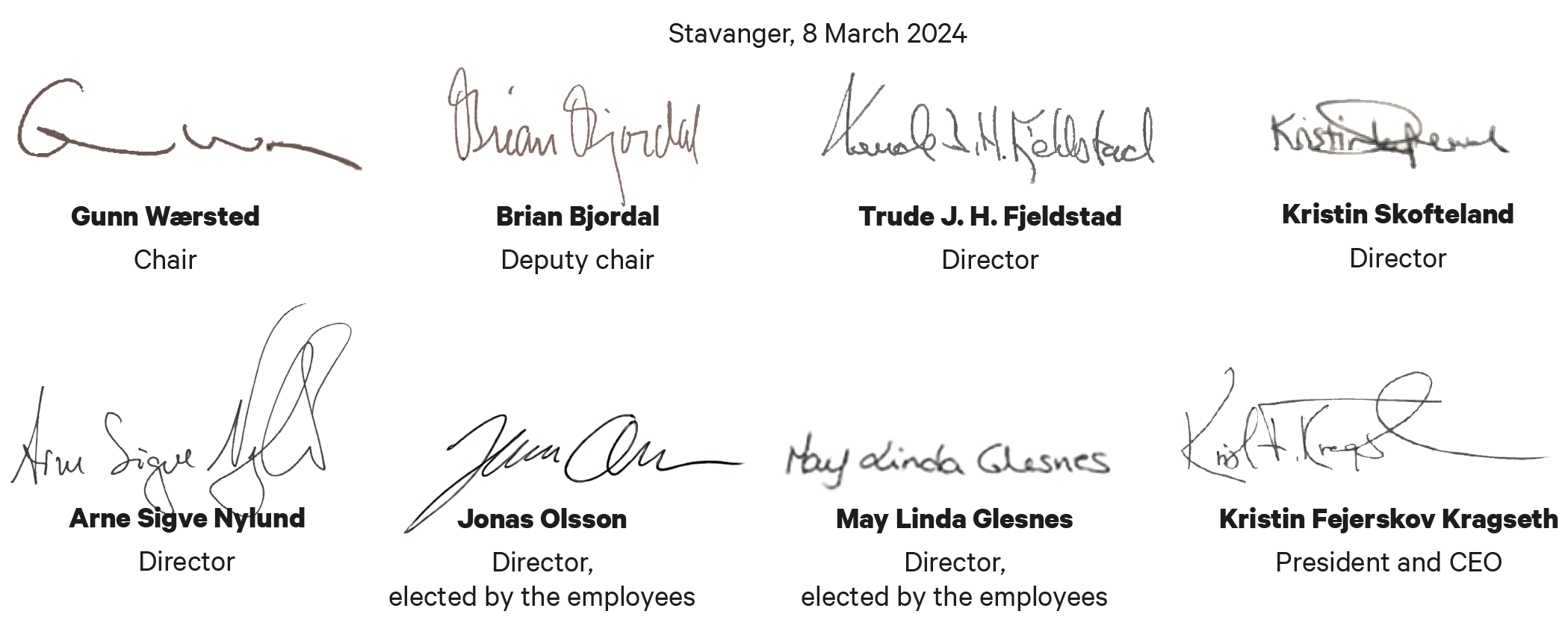1. President and CEO’s letter and Directors’ report
2. Introduction to the enterprise and key figures 2023
3. Activities and results from the year
4. Management and control
5. Assessment of future prospects
Outlook is described in the Directors’ report, Chapter 1.2.5. Outlook 6. Annual accounts 2023
